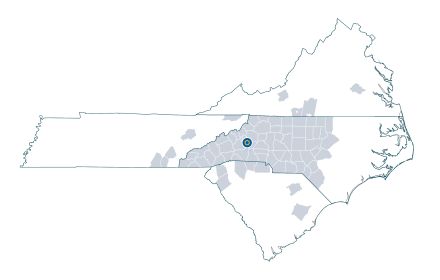The NSF North Carolina Textile Innovation and Sustainability Engine (North Carolina, South Carolina, Tennessee and Virginia), led by The Industrial Commons, aims to renew America’s textile industry to lead in global technological innovation, drive economic growth, create quality jobs and safeguard the fabric of the nation.
This NSF Engine is advancing the competitiveness of America's textile industry through research, development and commercialization of next-generation materials and processes to work toward extending the life of textile products, protecting the nation's textile supply chain and rebuilding the industry's workforce for future needs.
Addressing a critical U.S. need: Centered in the "textile belt" of North Carolina, The North Carolina Textile Innovation and Sustainability Engine aims to disrupt and revolutionize the $96 billion textile industry. While other regions of the U.S. have lost textile jobs, this region's textile industry has stabilized. The region boasts the largest concentration of textile workers in the U.S., with over 27,000 workers and an additional 30,000 in adjacent industries, such as waste streams and furniture workers, spanning almost 2,000 companies. This NSF Engine is led by The Industrial Commons, a nonprofit with a strong reputation within the textile sector and other fields for being a hub of regional, rural innovation with deep local, national and sectoral knowledge and relationships.
Additional information
Lead organization: The Industrial Commons.
Region of service: All counties in North Carolina with additional counties of South Carolina, Tennessee and Virginia that have established textile supply chain entities.
NSF award: NSF-2315305
| Key technology areas |
|---|
| Advanced materials, advanced energy and industrial efficiency technologies, biotechnology, robotics and advanced manufacturing. |



